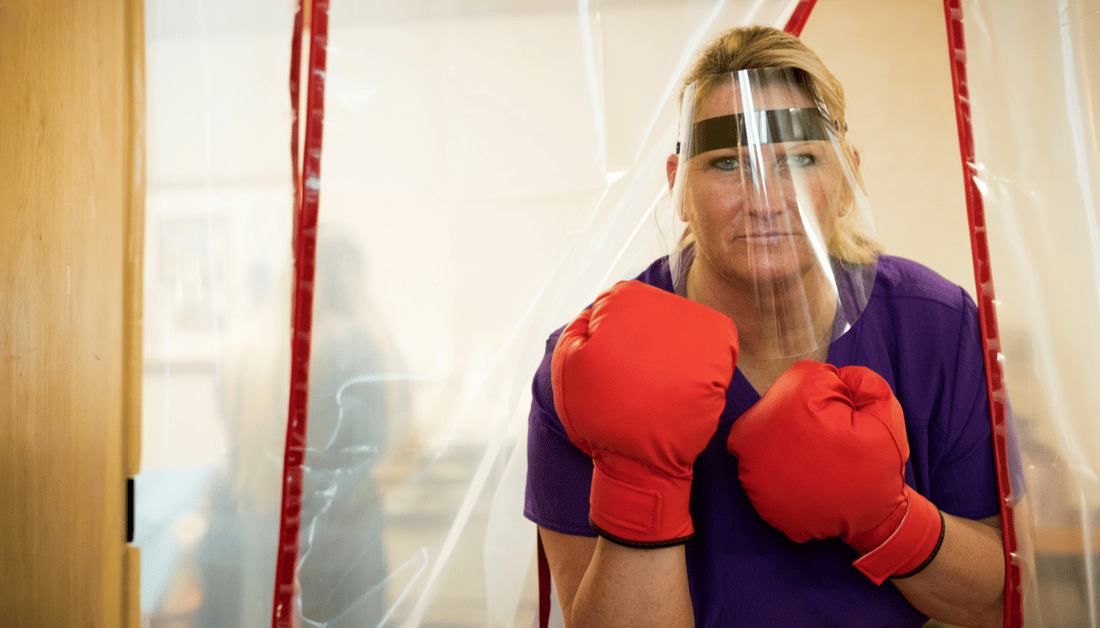Published 12/8/2020
Part 2
A continuation from the article: The Realities of Pandemic Fatigue - Part 1
For healthcare professionals “in the trenches” at hospitals and long-term care facilities, the day-to-day reality of caring for patients has surpassed the level of ‘challenging.’ As severe exhaustion and burnout threaten the most crucial component of our healthcare system, a third wave of the coronavirus is sweeping across the nation. Many states are now reporting more hospitalized COVID-19 patients than at any time since the pandemic began.
We find solace in reports of a soon-to-be-available, effective vaccine, and our spirits are buoyed. But the very restrictions, precautions, and cancellation disappointments that have happened over the past 9 months has contributed to a raging case of pandemic fatigue that will likely continue for the foreseeable future. Experts warn that mask-wearing and social distancing guidelines will need to remain in place until a large portion of the population has received the vaccine.
In the meantime, the well-being of healthcare workers has reached a critical juncture. It is imperative that individuals, as well as healthcare organizations, take steps to protect these essential, frontline heroes.
Due to their tendency to put others first, many clinicians pay too little attention to their own well-being, leaving themselves vulnerable, even under normal circumstances, to burnout. These challenging times call for a prioritized, strategic approach that includes steps to preserve physical and mental health.
1. Mindfully set attainable well-being goals
Do not rely on a by chance or “if I have time” approach, as neither will produce beneficial results. Instead, suggests Sherry Thomas, LeaderStat’s Director of Clinical Services, “make commitments such as—
• ‘I will strive to get ________ hours of sleep each night.’
• ‘I will plan accordingly – shop, prepare, pack – so I can eat nutritious meals each day.’
• ‘I will read/listen to music/phone a friend (whatever me-time activity applies) each day.’”
2. Find ways to include physical activity in your daily routine
While many of us claim a lack of time or energy for exercise, movement can create more energy, which may impact time constraints as well. When possible, get in those times of activity outside where the fresh air will provide an additional boost. Better yet, don a mask and ask a friend to join you on a walk.
3. Beware of too much news and social media time
“Set a specific block of time each day for updates, then stay away from news the rest of the day,” suggests Sherry.
A steady diet of the negativity and sensationalism that abounds on social media can quickly impact one’s emotional and mental well-being. Why cause additional stress for yourself when time spent connecting specifically with friends and family can boost rather than deflate your mental and emotional reserves.
4. Stay involved in hobbies and family activities
Another piece of advice from Sherry, “Take advantage of time away from work to focus on both family and personal interests. Have a movie and popcorn evening with the kids or immerse yourself in a relaxing hobby. Anything that removes you mentally and physically from the rigors of your job will help to refuel your tank for the next shift.”
5. Instead of focusing on the ‘cannots,’ focus on what you can do
With everything from sporting events, to family gatherings, to professional conferences, and community activities falling victim to the pandemic, it is all too easy to sink into a woe-is-me funk. Yes, we have missed out on so many things in 2020. “But dwelling on the losses will only serve to steal the joy and blessings that are still a part of your life,” says Sherry.
While we cannot meet in person with loved ones, video chatting allows us to stay connected. Mobile devices provide easy contact opportunities. Less hectic schedules have allowed many immediate families to spend more time together around the dinner table. And the list goes on.
You, the doctors, nurses, CNAs, technicians, therapists and support staff working tirelessly in our long-term care facilities, senior living communities, clinics and hospitals, are essential to the war against the coronavirus. We need you physically, mentally, and emotionally healthy as we persist through this most challenging time. You are true healthcare heroes. Please take care of yourself.
*This content is based on information available as of 12/8/20.



-1.png?width=258&name=LeaderStat%20Logo%20(4)-1.png)